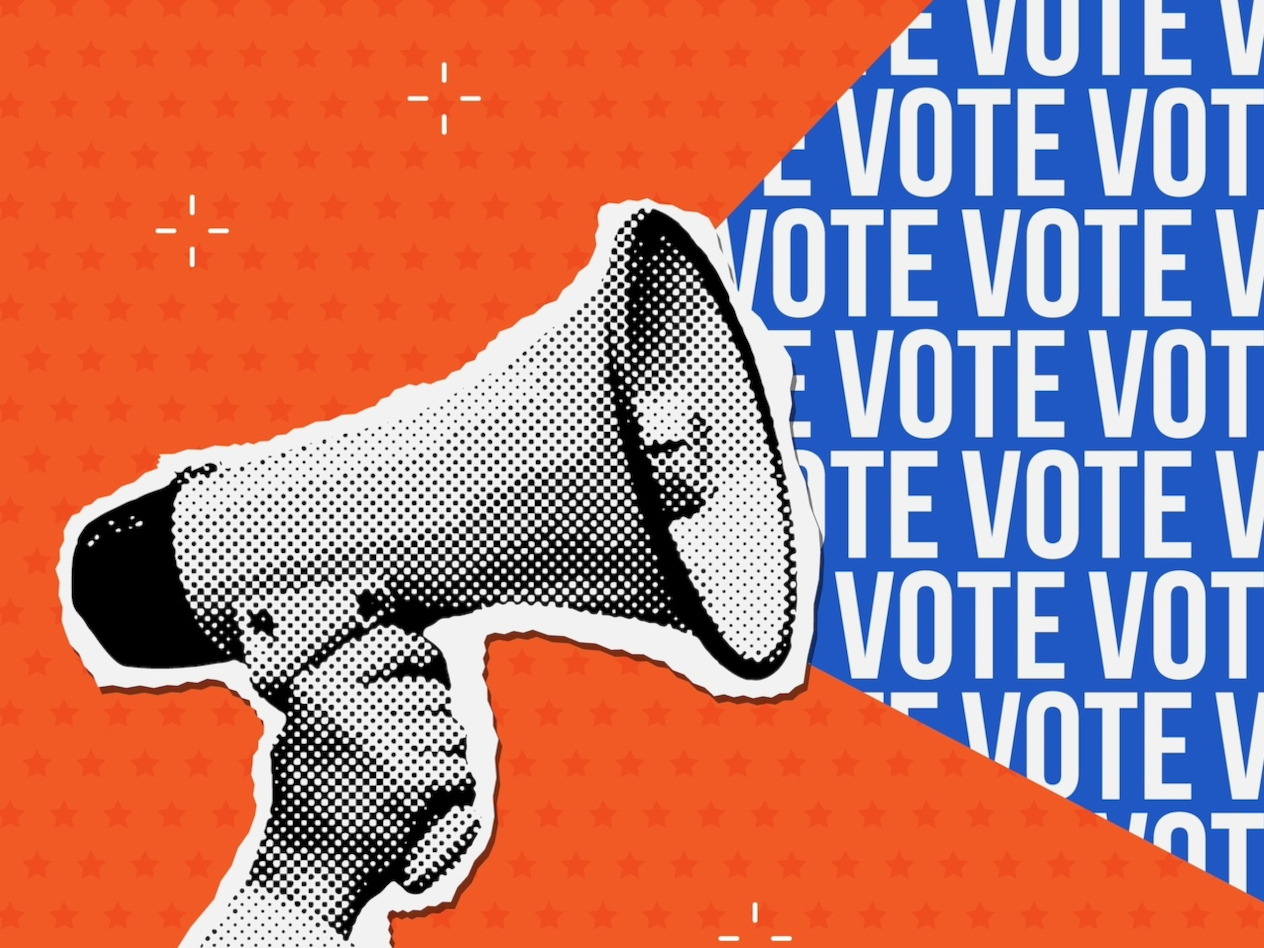Reframing voting as ‘duty to others’ key to increasing engagement, turnout
- June 24, 2024
- By Sara Savat
- 4 minute read

Americans have a right to vote, and many view that right as a duty. But is that duty to ourselves — to ensure our individual voice is heard and our interests represented?
Or is that duty to others — a duty to our families, our community, our country?
New research from the Olin Business School at Washington University in St. Louis published in the Proceedings of the National Academy of Sciences suggests that when people view voting as a duty to others — rather than as a duty to themselves — they’re more likely to feel an obligation to vote and, as a result, be more politically engaged.
This is especially true for individuals from working-class contexts — those with less than a 4-year college degree — who historically have significantly lower turnout than their middle-class counterparts— those with at least a 4-year college degree, according to study coauthor Hannah Birnbaum, assistant professor of organizational behavior at WashU Olin.
“In 2020, for example, only about half of working-class individuals voted compared to nearly three-quarters of middle-class individuals. When half of eligible Americans from working-class backgrounds do not vote, their interests are considerably underrepresented,” Birnbaum said.
“We know that structural factors — like access to polling places, transportation and time off work — contribute to low voter turnout. Individual factors — such as lack of knowledge — also factor in. But we believe there’s another factor at play and that is the messaging around voting,” said coauthor Andrea G. Dittmann, assistant professor of organization & management at Emory University’s Goizueta Business School.
Current messaging misses mark
Political campaigns and organizations have long used messaging that emphasizes the independent nature of voting to encourage citizens to exercise their right to vote. For example, the front page of Michelle Obama’s When We All Vote website emphasizes the importance of voting to “ensure your voice is heard.” Likewise, The League of Women Voters, urges people to “support legislation that stands up for your values.”
“Independence is central to American culture, so it’s not surprising that efforts to engage voters often stress the idea that voters have a personal duty to make their voices heard, express their opinions and exercise their rights. But that messaging might not work for everyone,” said study coauthor Hannah B. Waldfogel, a postdoctoral research associate at the Princeton School of Public and International Affairs,
Much of the messaging around voting also misses the fact that voting is inherently cooperative and collective, Waldfogel said.
About the research
The central question at the heart of this research was whether the way one perceives voting — either as a duty to others or a personal duty — predicts voter turnout.
Starting with a large, nationally representative sample of more than 10,000 Americans collected by the American National Election Studies, they found that only half (49.9%) perceived voting as a duty. Why does this matter? The surveys also showed there is a strong correlation between these perceptions and voter turnout: 82.2% of respondents who viewed voting as a duty turned out to vote. For those who did not see voting as a duty, only 57.6 % turned out.
Next, the authors wanted to know if these differing perceptions could help explain the voting gap between working- and middle-class individuals, so they dug a little deeper. Indeed, while 61.6% of individuals from middle-class backgrounds perceive voting as a duty, only 43.5% of those from working-class backgrounds share that belief.
Our work demonstrates how simply reframing voting messages to emphasize how it benefits the collective — rather than focusing on personal benefit — can motivate not just traditionally hard-to-reach working class voters, but also middle-class voters. It’s a win-win solution.
—Andrea G. Dittmann
A follow-up study of 431 respondents demonstrated a connection between the language people use to discuss voting and how much people perceive voting as a duty. They found that people who use more interdependent language to describe voting are significantly more likely to view voting as a duty compared to those who use less interdependent language. This was especially true for working-class individuals, but a similar correlation was present for middle-class participants.
Finally, an experimental study with 825 participants found that when people reflect on interdependent values — such as their relationships with others — compared to independent values — like their own uniqueness — they are more likely to perceive voting as a duty, which in turn, was associated with greater interest in political engagement.
“Practically, our research offers political campaigns and institutions a relatively costless and easily scalable way to motivate political engagement and boost voter turnout,” Dittmann said. “Our work demonstrates how simply reframing voting messages to emphasize how it benefits the collective — rather than focusing on personal benefit — can motivate not just traditionally hard-to-reach working class voters, but also middle-class voters. It’s a win-win solution.”
Media inquiries
For assistance with media inquiries and to find faculty experts, please contact Washington University Marketing & Communications.
Monday–Friday, 8:30 to 5 p.m.
Sara Savat
Senior News Director, Business and Social Sciences
